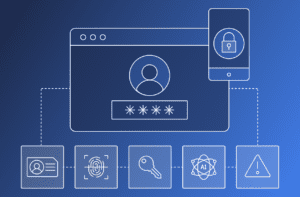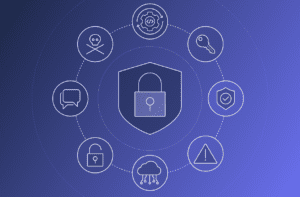Transmit Security co-founder and CEO Mickey Boodaei is on a mission to solve the identity problem. He believes organizations are waking up to identity at the root of all their account protection challenges. Once you solve the problem, he says, “You’ll have the best security and customer experience. You’ll move with the market.”
As a guest on Liminal’s State of Identity podcast, Mickey describes to host Cameron D’Ambrosi the all-too-common problem of fractured identity:
“The other day, I spoke to a bank with six different fraud teams,” he begins, “And they don’t talk to each other. That’s pretty much insane. Because if you want to provide good security and good account protection, you have to look at the entire lifecycle of the user.”
In the first half of the State of Identity podcast, Mickey charted his journey through the cybersecurity space, which he divides into three pillars: network security, endpoint security and identity.
Working alongside Transmit Security co-founder and long-time collaborator Rakesh Loonkar, Mickey’s first major triumph was with Imperva, which addressed network security. Again working with his partner Loonkar, Mickey sold the endpoint security solution Trusteer to IBM for $1 billion. With Transmit Security, Mickey is ready to conquer the final pillar: identity.
“You have to understand the history of the user,” he says, explaining his desire to connect the often siloed teams that deal with identity, “You have to understand what they did when they opened the account, what they did when they transacted. All of that is part of the visibility that you must have to provide good protection.”
However, as Mickey explains, identity consolidation isn’t as easy as simply getting these disparate teams in the same room. Entrenched systems are often held together by temporary patches that have slowly become permanent “fixes.”
“The problem here,” begins Mickey, “is that instead of thinking about how to secure your account the best way, all we think about is how we can patch the existing controls. So we had a password. It didn’t work because, for example, people could guess it. So what are we doing? We’re patching it.”
Mickey highlights significant pain points in cybersecurity — runaway complexity, compromises between security and experience and a disastrous level of patchwork identity.
“When restrictions don’t work. What are we doing? We’re patching it with another factor of authentication. We’re moving to SMS, or doing OTP over applications, right? It’s like we’re patching that as well.”
“If you try to patch your security,” he adds, “your customer experience will just get worse. And worse and worse. That’s that’s the entire problem with the balance in identity today.”
Fortunately, there’s a bright side, which host Cameron D’Ambrosi points out.
“You have built the Transmit Security platform centrally around the notion that you can have your cake and eat it, too,” notes D’Ambrosi. “We’re going to deliver you best-in-class security. But at the same time, your highest value customers, your most trusted customers, are going to breeze through with an ease a lower grade cybersecurity option was unable to provide.”
Mickey explains that a unified approach to identity combines security and user experience in one motion. Instead of trying to patch every issue with the existing architecture, Mickey says Transmit Security improves security and the customer experience because there’s no added friction.
“Organizations must start to think about consolidating everything that has to do with security,” he says, “When we’re building our technology, it has to be multipersona platform. So it allows different parts of the organization to provide the capabilities they’re trying to build into the identity stack.
“This is something that we thought about when we engineered the platform. We have parts of the platform that address the fraud people, parts that address more traditional security people, and other parts for account opening and digital teams. But going forward, I really think that organizations need to start thinking about consolidating all that to provide a much better experience and security.”
To listen to Liminal’s full “State of Identity” podcast.




